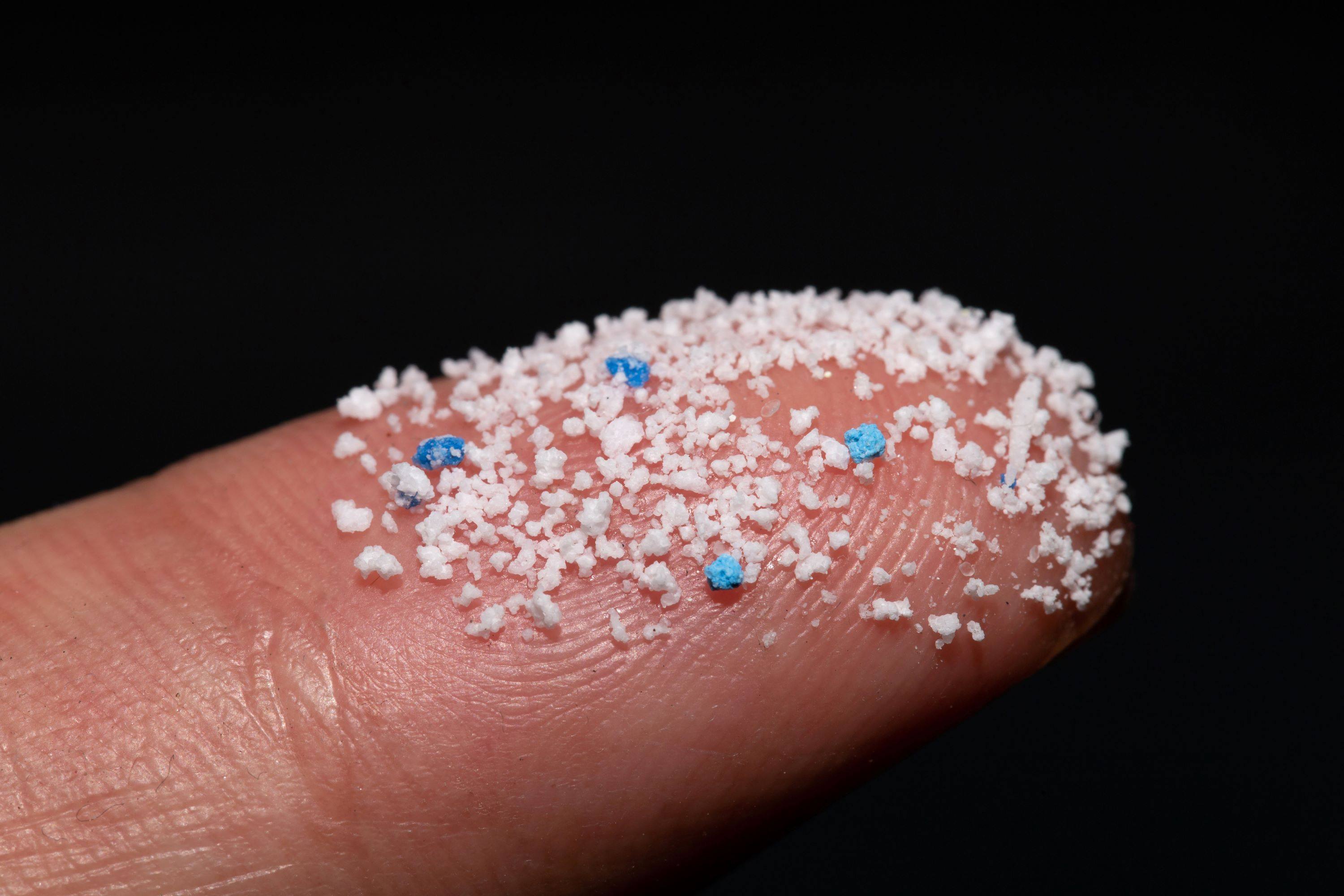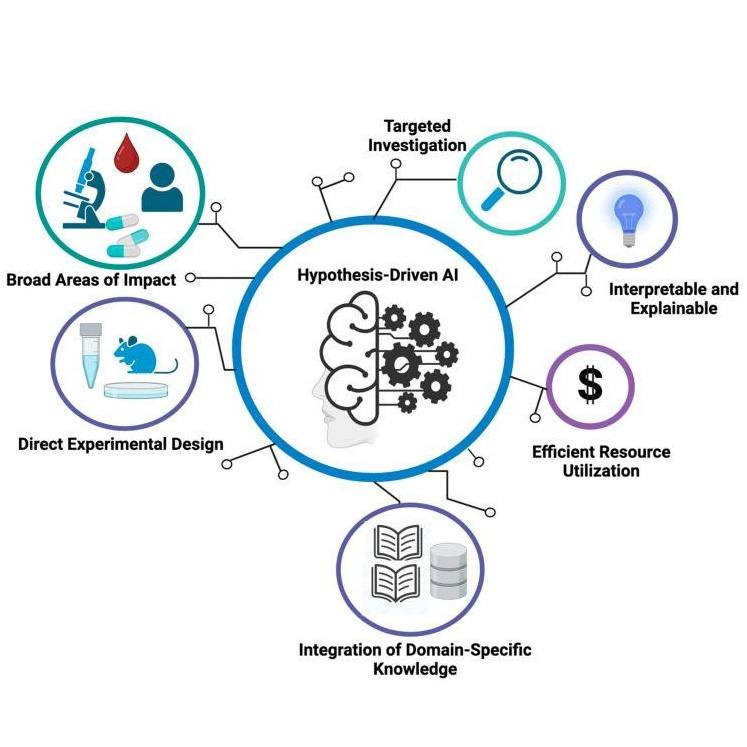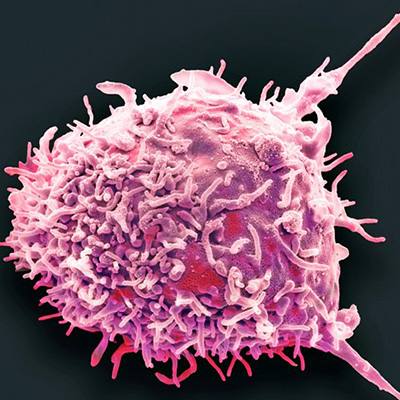-
Individualized Medicine
Science Saturday: Do environmental exposures contribute to human diseases?

Mayo Clinic researchers put the exposome under the microscope to understand links between lifelong exposures and diseases.
An accumulation of environmental chemicals, pollutants, microbes, and particulates may be living inside each of us — acquired from the air we breathe, the food we eat, products we touch, and the water we drink. These sometimes-harmful exposures can potentially interact with our genes to fuel diseases, including cancer, cardiovascular disease, respiratory illnesses, autoimmune diseases, and stroke. Research shows environmental factors are associated with more than 80% of human diseases and nearly 1 in 6 deaths worldwide.
In response, researchers at Mayo Clinic Center for Individualized Medicine are launching a major initiative to study a person's lifetime of environmental exposures, called the exposome, along with an assessment of their inherent biological responses to those exposures.
"We've made significant progress in mapping the human genome and understanding the role of genes in diseases, but genetics only accounts for approximately 10% to 15% of diseases. Now, the key to accelerating further discoveries in individualized medicine lies in putting the exposome under the microscope," says Konstantinos Lazaridis, M.D., the Carlson and Nelson Endowed Executive Director for Mayo Clinic's Center for Individualized Medicine.
Dr. Lazaridis says the exposome is considered a counterpart to the genome (a person's complete set of DNA). He says in many diseases, the exposome and genome work in combination.
"So, imagine the learning opportunities if we can not only better understand the gene part, but also examine the impact of our exposures of a lifetime and how those two elements interact in a human to maintain wellness or create disease.”
"Think of a plant," Dr. Lazaridis adds. "The health and longevity of the plant are not necessarily determined by what the plant is made of. It depends on the quality of the soil it's planted in, the cleanliness of the air that surrounds it, and the amount of chemicals and pesticides it's exposed to. It also depends on how those exposures interact with the plant's biological characteristics. The same is true for humans."
Dr. Lazaridis says identifying meaningful exposome associations to disease will require large-scale data analysis, deep-learning artificial intelligence methods, and complex multi-omics investigations. Multi-omics is a combination of two or more "omics" approaches, such as genomics, mapping genomes; proteomics, the study of proteins; metabolomics, the study of metabolic processes to identify the underlying causes of disease; epigenomics, the study of epigenetic changes on DNA; and transcriptomics, the study of RNA molecules.
"Every person has a unique environmental footprint that can be analyzed through signatures in the blood, urine, saliva, hair, and so on," Dr. Lazaridis says. "Ultimately, we hope to understand how these exposures interact with a person's genomic profile to influence their health so we can answer why one person who is exposed to a persistent pollutant develops cancer while another with the same exposure may not. And which low-level environmental exposures contribute substantially to the onset of disease?"
Dr. Lazaridis says advancing the understanding of the exposome and how environmental exposures affect a person's health will help guide lifestyle changes, interventions and prevention.
Exposome takes center stage at 11th annual Individualizing Medicine Conference
Dr. Lazaridis plans to spotlight the exposome at the 11th annual Mayo Clinic Individualizing Medicine Conference, called "Explore the Exposome" on Nov. 2-3, 2022, in Rochester, Minnesota. The conference will bring together some of the world's top scientists and clinicians to share the latest exposome research developments, including these featured speakers:
Roy Woychik, Ph.D., is director of the National Institute of Environmental Health Sciences and director of the National Toxicology Program at the National Institutes of Health. In these roles, he oversees federal funding for biomedical research to discover how the environment influences human health and disease. Recently, his research program has been focused on investigating the molecular mechanisms associated with how environmental agents influence the epigenetic control of gene expression.
Gary Miller, Ph.D., is vice dean for Research Strategy and Innovation, and professor of Environmental Health Sciences at the Columbia University Mailman School of Public Health. Dr. Miller is an international leader on the exposome and founded the HERCULES Exposome Research Center at Emory University. In addition, he wrote the first book on the topic, "The Exposome: A Primer." Dr. Miller has also helped develop high-resolution mass spectrometry-based methods to provide an omics-scale analysis in human and animal samples. His laboratory studies environmental contributors to neurodegenerative disease, such as Parkinson's and Alzheimer's
Dean Jones, Ph.D., a professor of medicine at Emory and director of the Clinical Biomarkers Laboratory, developed an exposome research program, building upon the metabolomics and mass spectrometry programs for affordable, high-throughput environmental chemical biomonitoring. His studies include redox biology and medicine, and he has research programs in the areas of redox systems biology, clinical metabolomics and environmental health.
Learn more about the 11th Annual Individualizing Medicine Conference and register today.
Learn more
Read more stories about advances in individualized medicine.
Register to get weekly updates from the Mayo Clinic Center for Individualized Medicine blog.
Join the conversation
For more information, visit Mayo Clinic Center for Individualized Medicine, or Twitter at @MayoClinicCIM.

Related Articles











